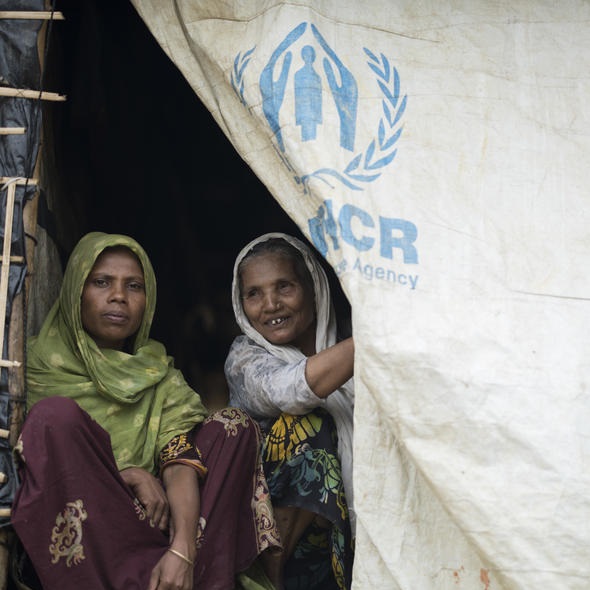Multi Sector Needs Assessment: Cox’s Bazar, Rohingya Refugee Response – June 2019
Bangladesh, 2019
Get MicrodataIdentification
UNHCR_BGD_MSNA_2019_JUNE_v2.1
Multi Sector Needs Assessment: Cox’s Bazar, Rohingya Refugee Response – June 2019
| Name | Country code |
|---|---|
| Bangladesh | BGD |
In successive waves over four decades, Rohingya refugees have been fleeing to Bangladesh from Rakhine State, Myanmar, where they have suffered systematic ongoing persecution. Since August 2017, an estimated 745,000 Rohingya refugees have arrived in Cox's Bazar, Bangladesh, increasing the total number of Rohingya refugees to more than 900,000.
Most of the newly-arrived refugees have settled in hilly, formerly-forested areas that are vulnerable to landslides and flash-flooding in monsoon season and rely heavily on humanitarian assistance to cover their basic needs. As the crisis moves beyond the initial emergency phase, comprehensive information on the needs and vulnerabilities of affected populations is needed in order to inform the design and implementation of effective inter-sectoral programming. To this aim, a Joint Multi-Sector Needs Assessment (J-MSNA) was conducted across Rohingya refugee populations to support humanitarian planning and enhance operational and strategic decision-making. The J-MSNA was conducted in support of the mid-term review of the 2019 Joint Response Plan (JRP), with the specific objective of enabling the tracking of JRP 2019 indicators for monitoring and review purposes. A total of 876 households were surveyed across 33 refugee sites.
This J-MSNA was funded by UNHCR and coordinated through the MSNA Technical Working Group of the Information Management and Assessment Working Group (IMAWG), led by the Inter-Sector Coordination Group (ISCG) and comprised of: UNHCR, IOM Needs and Population Monitoring (NPM), ACAPS, WFP VAM, Translators without Borders, and REACH.
Household and individual
Version
2.1: Edited, anonymous dataset for licensed distribution.
Scope
The scope of the survey includes:
- household characteristics
- nutrition
- shelter needs
- food security
- interactions with community
- safety
- needs
- individual characteristics
- individual health
- individual work
| Topic |
|---|
| Health |
| Food security |
| Livelihood & Social cohesion |
| Cash Assistance |
| Food Distribution |
| Shelter/Other Infrastructure |
| Health Care Referral Services |
| Basic Needs |
Coverage
33 refugee sites in the upazilas of Ukhiya and Teknaf in Cox's Bazar district (Kutupalong registered camp was excluded from the assessment due to security issues).
Producers and sponsors
| Name |
|---|
| UNHCR |
| IOM Needs and Population Monitoring |
| ACAPS |
| WFP VAM |
| REACH |
Sampling
A total of 876 households were surveyed across 33 refugee sites,2 employing a simple random sampling methodology of shelter footprints within official site boundaries. Each survey was conducted with an adult household representative responding on behalf of the household and its members. Findings are generalisable to refugee populations living within each of the two Upazilas2 with a 95% confidence level and 5% margin of error. This factsheet presents key findings from both Upazilas, where households were surveyed between 9 - 24 June 2019.
Sample weights for the household data were computed dividing, for each Upazila, the population by the sample size.
Survey instrument
The questionnaire includes the following sections: household characteristics, individual characteristics, nutrition, shelter, protection and social cohesion, food security and livelihoods, communication with communities, multi-sector.
Data collection
| Start | End |
|---|---|
| 2019-06-09 | 2019-06-24 |
| Name |
|---|
| United Nations High Commissioner for Refugees |
| IOM Needs and Population Monitoring |
| ACAPS |
| WFP VAM |
| REACH |
| Translators without Borders |
Data processing
Dataset was edited and anonymised with recoding and local suppression.
Data Access
Cite this data as follows:
UNHCR (2019) Multi Sector Needs Assessment: Cox's Bazar, Rohingya Refugee Response June 2019. UNHCR microdata library: https://microdata.unhcr.org
Contacts
| Name | Affiliation | |
|---|---|---|
| Curation team | UNHCR | microdata@unhcr.org |
Metadata production
UNHCR_BGD_2019_MSNA_June_DDI_v1.0
| Name |
|---|
| United Nations High Commissioner for Refugees |
2020-01-17
